So I just read a great short piece in Vanity Fair by the Australian butch lesbian comic on her clothes and why. Suffice it to say you should go read it.

So I just read a great short piece in Vanity Fair by the Australian butch lesbian comic on her clothes and why. Suffice it to say you should go read it.

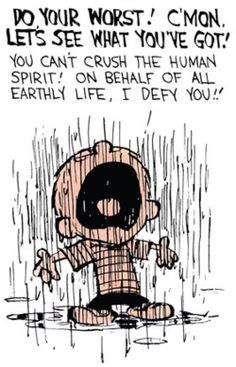
It turns out that hair gel will not keep your hair from getting soaked in torrential rain. It will, however, make it keep its shape regardless. I think I am breaking even tonight.
Okay, so I am bored, bored, bored with the Same Old Hair that I have had for the vast majority of my adult life, except for that year and a half (and ten years on my driver’s license) that I tried to grow it long and it looked utterly ridiculous except when I was wearing a baseball hat.
I have printed out some pictures from the Interwebs of hair I like, but in the end I am going to a new place recommended by someone I met in the restroom of a bar and I complimented her on her interesting haircut, and I am simply going to trust that the hair stylist can look at my little bullet head with my blond hair and make me look, well, if not fabulous at least pleasantly different.
Here are the peoples and their hair.
And here is a Calvin & Hobbes cartoon that I suspect is how my Saturday appointment is likely to go, although I am not bringing my mother with me, which is just as well (especially given that she lives in a different state) since if I get the kind of haircut I want, she will probably hate it.

A Google search of “history of my hair” just now turned up 68,800,000 results. This does not surprise me. Just as our geopolitical history is filled with battles, innovations, opportunities, colonizations, festivals and cooptations, so is the history of our hair. Think about it. When you are a kid, your parents pretty much decide what your haircut will look like, and it often ends up being a smaller version of theirs. Maybe around the time you are approaching your teenage years, you start to get a say in the matter and for some of us who grew up with our mothers cutting our hair, this will be the first time your parents paid for someone else to do the job.
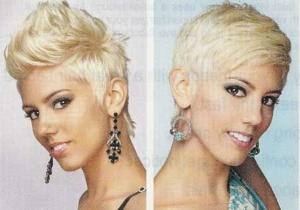
Puberty is also when the changes to the rest of your body start to affect your hair too, usually making things harder, because who ever heard of puberty making ANYTHING easier? The hormone shifts, the social shifts, all of that make it even harder to figure out the individual shifts that might be happening in your identity: what do I want more, to stand out or to belong?
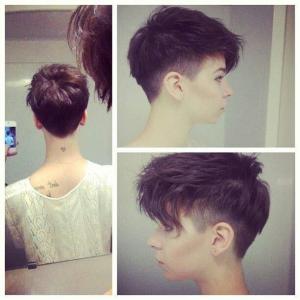
Eventually, in the business world, you adapt to a balance between identity and belonging, to set yourself apart a little while also maintaining a professional stance. And always assuming that your physical hair itself isn’t causing problems (not always a fair assumption, as my African American women friends will be the first to point out), sticking to that balance can—slowly or quickly—lead to utter boredom.
These things are compounded when your identity undergoes more shifts. People get married and need to do something excessively fancy with their hair for the wedding. They get new jobs where the professional standard is different. They figure out they are queerer than they thought, and want to express that. They go through a midlife crisis. They have a baby—and we all know how babies grab at long hair. A lot of things can trigger a desire to change what we look like. The problem is, when the world is full of options, how do you choose the change you want?
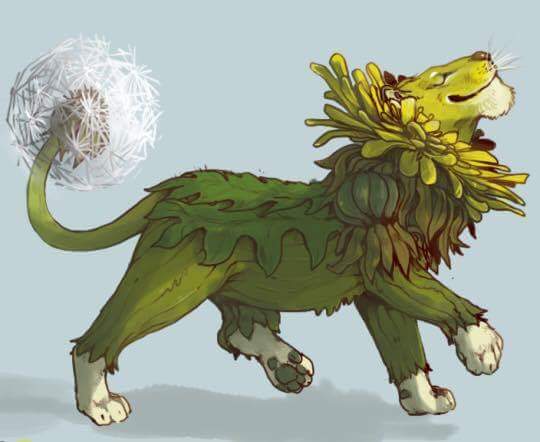
In her essay for PopSugar, “I’m Asian, I Came Out of the Closet, and I Finally Cut My Hair Short,” Jo Chiang writes about the difficulties of fitting into a white-dominated US queer subculture within the dominant gender-binary-heavy US heteronormative culture as an Asian, given the differences between Asian and Euro-Caucasian hair. She says, in part:
“Androgyny has always been about that hard-edged balance between masculinity and femininity. But when Asian masculinity is desexualised and Asian femininity is infantilised, twists on gender presentation don’t quite make the same impact.[…] It’s an ongoing journey to feel positive about my queerness, my race, and my hair on top of that. Even out of the closet, I would often feel awkward and ill-fitted. I tried new haircuts. My hair wasn’t fine enough to pull off the pixie cut or flexible enough for a pompadour, and my cowlicks were too tenacious for anything asymmetrical. It took trial and error and error and error, until I figured out a solution. I found a Japanese hair salon. They knew my texture, the quirks of my part, and the shape of my skull. While they did not share my Taiwanese heritage, they understood the very specific struggles I had with my hair.
“Instead of going wild with a clipper, my stylist brought shape to the back of my head with careful trimming. She left the sides and top long to let my cowlicks bear down with their own weight, but added a choppy texture to keep it from flattening. When I stopped bringing in photographs of models I wanted my hair to resemble and instead worked with my stylist to understand the ways my hair grew out, I finally settled into cuts that suited me and my queerness.
“I walk the streets happy to confuse strangers with my gender presentation.
“There is no one way to look queer. A haircut isn’t a requirement for coming out. But the decision to resist against assumptions of gender and femininity and race can be a healing and invigorating aspect of loving and accepting yourself in a world that continues to police beauty.
“These days, I walk the streets happy to confuse strangers with my gender presentation. When I feel especially frisky, I style my hair up with some grooming cream, and when frisky is too much work, I wear a hat. Either way, long or short, my hair will always be as queer as me.”
I like the way this essay targets the intersectionality of identity–the flipside of the intersectionality of oppressions, since, after all, we get oppressed because of our identities. Having lived in Japan and been a martial artist for more than half my life, I have had a lot of East Asian/Asian-American friends, and it is good to learn a bit about their realities. One of the things I will consider this week is where hair texture is not the only problem a person could be facing in the Queer Hair Dilemma. But Chiang’s meditation is a great place to start.
I say this because I think we all look for quick fixes, believe that quick fixes are in fact possible: “Now that I know who I am, I need to declare it. Declaring it will be easy. Declaring it nonverbally may even be easier than doing it verbally.”
Ah, fond hope, so soon dashed for most of us. I am putting this out here as a hypothesis, which I intend to test this week by talking to my queer/lesbian friends.
H1: Most people struggle to find a haircut that represents them as they want after they come out.
Wish me luck, children. I’m goin’ in!
Jo Chiang, “I’m Asian, I Came Out of the Closet, and I Finally Cut My Hair Short,” PopSugar.com.au. 16 Aug. 2016. Web. 16 Aug. 2016.
So tonight I went with some friends to the vigil for Orlando held in the plaza in front of Boston City Hall, and prayed and held silence and signed the book for our brothers and sisters in Orlando, to let them know we care. I still need to process all that, and I will write about it soon, but for now, a look back to Saturday and what I spent the time doing when I wasn’t either watching the parade or dancing my ass off.

Needle. Haystack. Backbeat.
One
A sea of exhausted queers, underdressed, rained on,
Milling jubilantly across the plaza. Three flags:
Stars and Stripes, Massachusetts Indian, Rainbow.
Sixty-nine reasons to salute. Save the environment.
Adopt a shelter dog. Get tested. Buy a t-shirt.
Help veterans stop our warring. Eat fried dough.
There on the steps, a woman break-dances to music
Coming from the stage, to the applause of her friends
And strangers. One onlooker, all in black leather,
Turns away. We text and call you, give up,
Then turn around, and there you are at last.
Two
Parking lot block party between tall brick
Buildings echoing the DJ’s words, the backbeat
So deep my bones reverberate. Broken tarmac
And puddles of Bud Lite Lime make a rough
Dance floor, but I’ve lost my friends. I looked
Away for a moment and once again I was
Alone amid a few hundred tightly packed
Tattooed women’s bodies gyrating. Buzz cut
Blue hair bump and grind. Surely salmon swimming
Upriver move to no such background music,
Though the press of bodies must be something
Like this. How then to find four particular
Fish in the struggling river? Wandering the edges
Will not suffice. Only leaping into center stream,
Zenlike, gets it done. I abandon my goal,
My isolation, and finally find what I seek.
Three
Black light disco ball and all the young men
Packed wall to wall and taller than all
My lost friends: I am tired of losing them.
Even more than the vibrating drums and lights
Is the slight pall of sticky spilled drinks
On the floor. All these men so intent on
Scoring block my view as the lights
Scramble my attention. Trying to make out
Lyrics, like making out faces, is too much
Of a chore. Some searches are just doomed
From the start. At least I can still find the door.
Photo by Paula M. Grez.
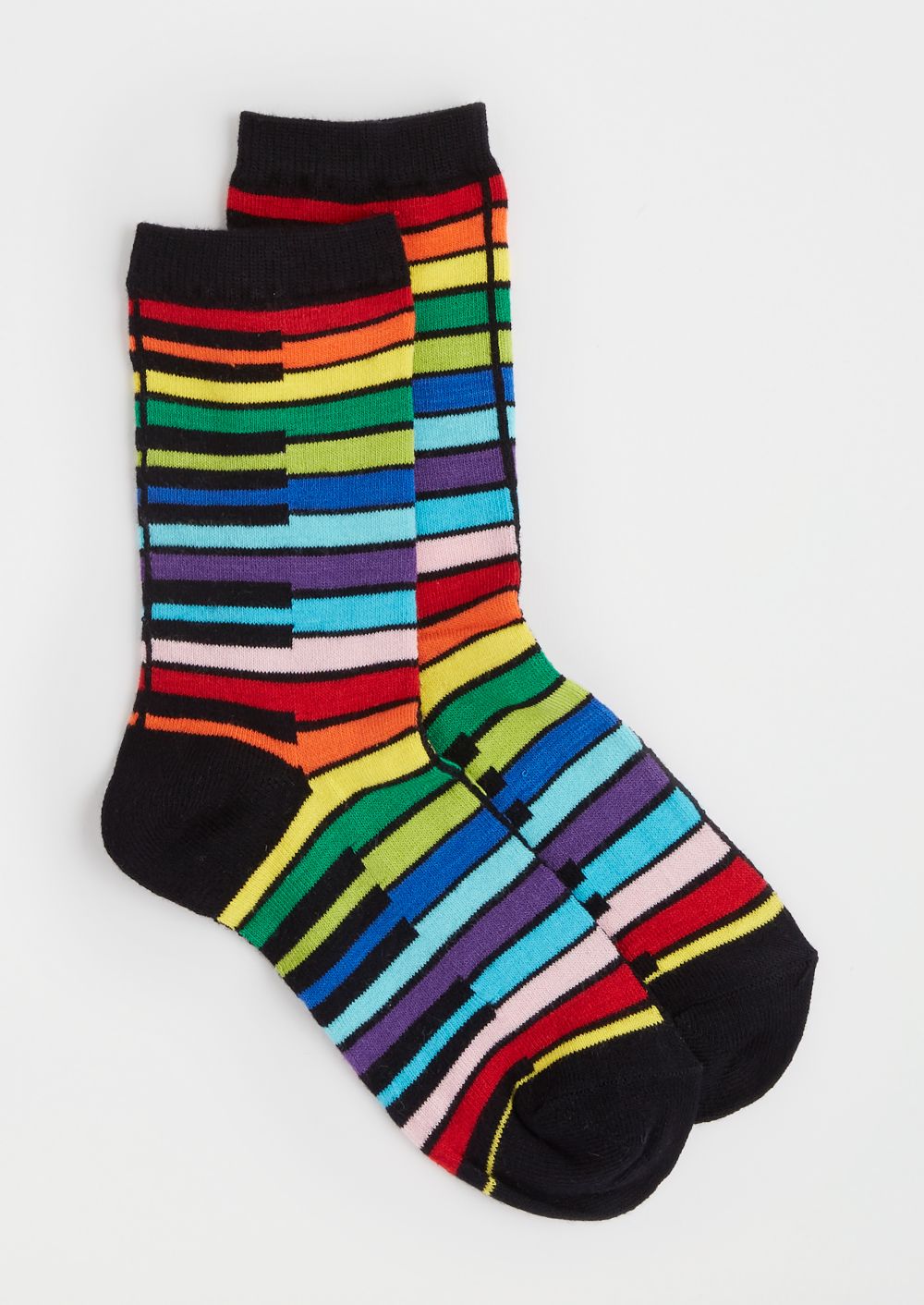
In case you weren’t sure, this will be a not-entirely-aimless post about my first out Pride and all the thinks and all the feels. Be warned.
In preparation for my first (real, not as an ally) Boston Pride, I looked for rainbow-striped socks. It took me five places and the one I just randomly thought might on the off-chance have them, Party Favors, did, although the socks have piano keys on them, but who is going to notice that?
Tonight was the Boston Dyke March. We gathered on the Boston Common, women wearing their hair in ways from the sublime to the ridiculous to the fabulous and EVERYTHING in between. Rainbows everywhere, including the flag under which we, the lesbian dodgeballers and friends, gathered (after five women figured out how to enlarge the holes in the flagpole with keys and make the zipties smaller with the same tools. I knew I should have brought my pocket knife, but there you go).

About twelve or so years ago I went to an arts conference that had Adrienne Rich as the headlining speaker. I thought then that I was seeing a lot of lesbians. Wrong. I have never seen this many lesbians in the same place, and even weirder (queerer?) that the same place was a place I have lived, studied, worked and shopped: Boston Common, near Emerson College, the Back Bay, and environs.
I never thought I would be the sort of person who would find herself chanting, “We’re here, we’re queer. We’re fabulous, so don’t fuck with us.” But life, as it turns out, takes you in directions you could never have anticipated. This is not a bad thing.
Strange, sure. Surreal, absolutely. But bad? Hell no.
One of the things that made it surreal was the police detail directing traffic around our march. Being Hermione Granger, she who “when in doubt, go[es] to the library,” in advance of my first official pride weekend, I went to the library and borrowed David Carter’s Stonewall: The Riots that Sparked the Gay Revolution. (Well, honestly, I am hardly going to celebrate a holiday I don’t understand or know about, am I?) Reading about the police entrapment that led up to the Stonewall riots and police brutality that occurred during them and then seeing the Boston cops waving at cars, waving at us, smiling at us: wow. Just wow. I was barely one when Stonewall happened. In my lifetime, all these things have changed so much, not just going from riots to parades, but going from the social stigma of same-sex couples holding hands or dancing together to the Supreme Court ruling for same-sex marriage…it’s all so overwhelming and fast.
A friend of mine tonight said that the difference in speeds between the struggle for rights for gays and for racial minorities probably was caused by finding gays in one’s family and neighborhood, something that is less likely or impossible to happen with people of different races. I had never thought of it in those terms, although certainly my sister being a lesbian started me off as an ally in the first place, and my older parents as well. (My brother was a theater major, so he didn’t probably need the family thing. Also, he is straight enough to make up for both my sister and myself, and that has to help too, I suspect.)
Still, I have only been out for five months. And before that I had no idea that I was in. When I was growing up straight was the default font, but not the way Microsoft Word makes, say, Cambria 11 point default and then you have a hundred options. When I learned to type, I had a Royal manual typewriter, that had Courier font in only two sizes, 12 and 10. Being straight was default: Courier 12. Being gay was not default: Courier 10. If you were not one, you were the other.
And maybe that is one of the coolest things about the rainbow: it’s not so fucking binary. It is by definition Both/And rather than Either/Or. It’s All Of The Above and Multitudinous and We-Are-Fucking-Legion.
So even though I still don’t feel 100% that I belong in this really amazing huge parade of women doing themselves in their own very particular ways, I have friends who say, “Oh no, you totally belong here.” And that makes me feel a little bit more okay with all these recent changes.
Which is, let’s face it, kinda fabulous.